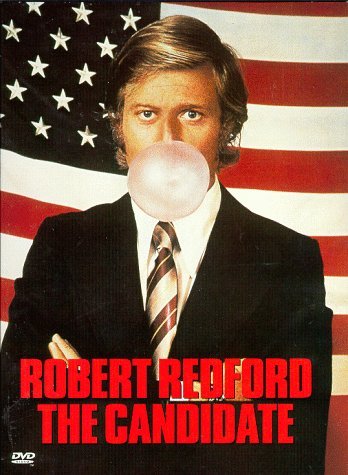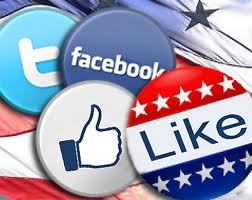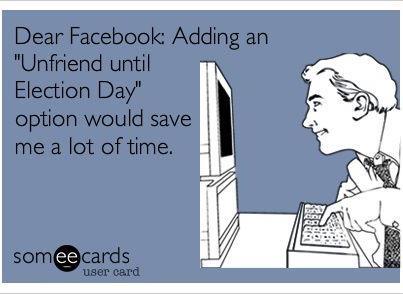
According to Mayhew's review of "The Electoral Connection (1974)", the primary goal of candidates running for Congress is to get reelected. Politicians typically participate in three activities:
1: Advertising
2: Credit Claiming:
3: Position Taking
All three are easier for incumbents, a member who already holds office, for he/she wins in Congress 90% of the time! New participants must keep up with the trends by creating Facebook and Twitter accounts to advertise themselves.
So, are candidates actually using Social Media?
Political scientists Christine Williams and Jeff Gulati prove that the use of social media in campaigns significantly increased during the elections from 2006 to 2008 in "Social Networks in Political Campaigns: Facebook and Congressional Elections 2006, 2008 (2009)." Since 2008, Facebook and Twitter use further increased. In fact, political scientists, Antoinette Pole and Michael Xenos point out that in the 2010 gubernational elections, between 66% and 72% of candidates used Facebook and Twitter.
Typically, instead of having Facebook profiles, politicians have Facebook pages where other users can, "like," the page to review activity, comment, etc. Even President Barack Obama has a Facebook page. I happen to follow Obama on Twitter and he follows back every single person. Between interviewing with Jimmy Kimmel and fundraising with Jay-Z and Beyonce at, Obama is hip and certainly getting the attention of young voters.
Speaking of, I wonder if his activity has increased with the impending presidential election! Williams and Gulati also state that the more competitive the race, the more likely incumbents and newcomers are to utilize social media.
In other words, Congress, presidential candidates and even governors advertise platforms through social media. Both incumbents and newcomers use social media, but are more likely to show activity when a race is competitive and close to voting day. I guess this means Barack, Mitt, Joe and Paul are busting out their iPhones and tweeting away! Well, their employees certainly are.
Do women use social media?
Women are just as likely to incorporate social media into campaigns as men. Although women are not as likely to run for office, according to researchers, Richard Fox and Jennifer Lawless in "Entering the Arena? Gender and the Decision to Run for Office (2004)," the gender gap in the United States political system derives from the idea that women do not physically run for office as frequently as men do. In fact, Fox and Lawless insist that when women do run for election, gender is irrelevant in that woman are just as likely to win as men.
Why don't women run as frequently as men do?
Fox and Lawless outline the major reasons why women lack participation in elections. First, women are less likely to be supported by a political party or source to motivate them to run. Second, females do not have the same confidence as males, for they frequently feel unqualified to run, even when they have similar resumes. Third, although less significant, women (more frequently) balance other responsibilities such as family and household chores, leaving them less time to focus on a campaign.
As a woman, the facts are hard to face. Are we really not confident enough? Upon reading these statistics, I began checking the methods of study to ensure accuracy, for I assumed the indifference of men and women and politics was primarily due to stereotypes. I remember when Hilary Clinton and Sarah Palin were running -- they were criticized for showing feminine characteristics. "She's only crying because she's a woman; etc." Step it up ladies ;)
Why you should use Facebook and Twitter if you want to help advertise your candidate:
Peter Fenn explains in the video above, how Internet use is responsible for a large portion of President Obama's donations from his campaign in 2008. Tony Romm, member of Politco newspaper, points out that even regular people assist in advertising their favorite candidates by re-tweeting and sharing posts. An undecided friend may be scrolling through feed, stumble upon a political post and potentially decide who to vote for based on that small interaction. Social media is a growing phenomenon that has captivated all walks of life including politics, campaigning and average citizens just looking to share their opinions.


No comments:
Post a Comment